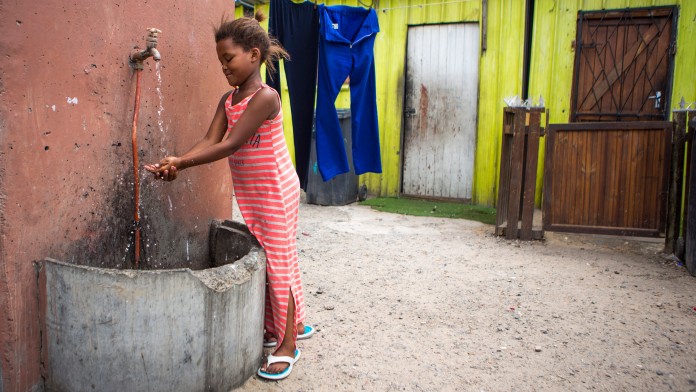For better future prospects worldwide
Business area KfW Development Bank financed numerous projects in a whole range of sectors on behalf of the Federal Government in 2016, from sustainable metro systems in India, through e-vouchers for Syrian refugees, to energy-efficient houses and buildings in Latin America.
The most important FC financing instruments
KfW’s role in German Financial Cooperation (FC) is that of both an experienced bank and a specialised development institution. It promotes and supports programmes and projects on behalf of the Federal Government – from the first conceptual idea, through implementation, to the subsequent assessment of results.
The Federal Ministry for Economic Cooperation and Development (BMZ) is the primary ministry on whose behalf KfW Development Bank’s projects are promoted. KfW also operates on behalf of other federal ministries (Federal Foreign Office and the federal ministries of economics, environment and finance). After the ministries of the German Federal Government, the EU is the most important public partner and client of KfW Development Bank. The focus remains on cooperation in connection with EU blending.
This is a combination of EU grants and loans from development banks aimed at enabling larger investment projects and more efficient use of public EU development funds. Blending enables provision of long-term and low-interest financing for important infrastructure projects in developing countries and emerging economies.
In 2016, EU development policy continued to be characterised by a strong focus on EU-neighbour regions, LDCs, mobilising private equity and matters relating to refugees. In this context, the European Commission announced a comprehensive new initiative in September 2016, the External Investment Plan (“EIP”). The plan is designed firstly to combat the refugee and migration crisis, and secondly, to help achieve the Sustainable Development Goals set out in the Agenda 2030, which was adopted in 2015. The EIP is based on the well-known EU blending facilities and also provides for a new guarantee mechanism. The EU aims to mobilise an investment volume of up to EUR 44 billion in Africa and the EU’s neighbouring regions.
Legal notice:
The information contained in this online Annual Report 2016 is based on KfW’s Financial Report 2016, which you can download here. Should this online Annual Report 2016, despite the great care taken in preparation of its content, contain any contradictions or errors compared to the Financial Report, the KfW Financial Report 2016 takes priority.


Share page
To share the content of this page with your network, click on one of the icons below.
Note on data protection: When you share content, your personal data is transferred to the selected network.
Data protection
Alternatively, you can also copy the short link: kfw.de/s/enkBbvuX
Copy link Link copied